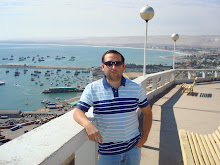Liceo “Rector Abdón Andrade Coloma”
Tradición e Innovación
Arturo Prat 369 fono Fax (64)322437
www.liceoraac.cl
La unión.
Unit : Fiction / Movie
Fiction (Latin: fictum, "created") is a branch of literature which deals, in part or in whole, with temporally contrafactual events (events that are not true at the time of writing). In contrast to this is non-fiction, which deals exclusively in factual events (e.g.: biographies, histories).
History of fiction
Main article: History of fiction
The history of fiction coincides with much of the history of literature, with each genre of fiction having its own origins and development.
By form: legends, comics, fables, fairy tales, film, , novels, plays, poetry, serials, short stories, situation comedies, and video games.
By length: flash fiction, short stories, , novellas, novels, and epic poetry.
By content: pseudohistory, genre fiction, detective fiction, fantasy fiction, mystery fiction, and science fiction.
Elements of fiction
Character
A character is any person, identity, or entity that exists in a work of art. Characters may be entirely fictional or based upon real, historical entities. Characters may be human, supernatural, mythical, divine, animal, or personifications of an abstraction. Characterization is the process of creating an image of a person in fiction, complete with that person's traits, features, and motivation.
Plot
Plot is a sequence of interrelated events arranged to form a logical pattern and achieve an intended effect. It is often designed with a narrative structure or storyline, that includes conflict, rising action, and climax, followed by a falling action and a resolution.
Setting
Setting, the location and time of a story, is sometimes referred to as story world or, to include a context (such as society) beyond the immediate surroundings of the story. In some cases, setting becomes a character itself and can set the tone of a story.
Theme
The theme of a story is the point the writer wishes to make, a moral or conceptual distillation of the story often posed as a question or human problem.
Style
Style is not so much what is written, but how it is written. In fiction, style refers to language conventions and literary techniques used to construct a story. The communicative effect created by an author's style is sometimes referred to as the story's voice. Each writer has his or her own unique style, or voice.
martes, 11 de agosto de 2009
Suscribirse a:
Entradas (Atom)
Archivo del blog
Datos personales

- Cristian Esteban Burgos Marquez
- región de los Rios, Chile
- Licenciado y Profesor en Educación Media mención Inglés,Universidad de Los Lagos,Osorno.